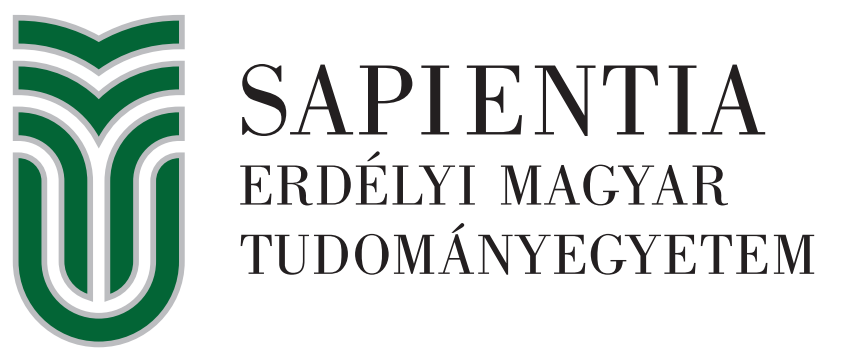Facilitating Conflict Transformation: Implementation of the Recommendations of the OSCE High Commissioner on National Minorities to Romania, 1993-2001 Hamburg: CORE, p. 154. - CONTENTS
Contents
Editors’ Preface [pdf, 62k]
List of Abbreviations [pdf, 147.8k]
Preface [pdf, 156.6k]
Chapter 1. The Dynamic of Ethno-political Relations in Romania [pdf, 704.8k]
1.1 Minorities in Romania - A Brief Overview
1.1.1 Size and Demographic Developments
1.1.2 Territorial Distribution and Degree of Urbanization
1.1.3 Mother Tongue and Religion
1.1.4 Historical Background
1.1.5 Political Minority Mobilization and Relation with the State
1.2 Ethno-political Developments in Romania 1989-2001
1.2.1 Ethno-national Dispute as Dominant Frame of Reference (1989-1993)
1.2.1.1 The Institutionalization of Majority Nationalism
1.2.1.2 The Options of the Main Minority Actor
1.2.1.3 Relations with Hungary
1.2.1.4 The Expanding Influence of International Actors and Its Impact on the Domestic Scene
1.2.2 Growing Contradictions between Domestic and Foreign Policy (1994-1996)
1.2.2.1 The Double Isolation of the RMDSZ
1.2.2.2 Norms Matter! Recommendation 1201 and the Bilateral Treaty with Hungary
1.2.3 Variable Geometry in the Triangular Relationship (1996-2001)
1.2.3.1 The Inclusion of the RMDSZ in the Romanian Polity
1.2.3.2 Hungary and Romania: Vacillating Relations
1.2.4 The Transformation of the Inter-ethnic Conflict Constellation in Romania
Chapter 2. Institutionalized Political Participation of Minorities [pdf, 319k]
2.1 Minority Rights in the Romanian Constitution
2.2 Raising Legal Standards
2.3 Minority Representation in the Legislation
2.4 The Council for/of National Minorities as a Consultative Body
2.5 Executive Structures at the Level of the Central Government
2.6 The Ombudsman as a Supervisory Body
2.7 Presidential Pardon in Minority-related Legal Cases
2.8 The Law on Minorities
Chapter 3. Language Use and Educational Politics [pdf, 657.4k]
3.1 Language Policies - Theoretical Considerations
3.2 The Use of Minority Languages in Public Administration
3.2.1 Linguistic Rights and Administrative Policies during Communism
3.2.2 Public Minority-Language Use and Decentralization as Ethno-political Battlegrounds (1990-1996)
3.2.3 No Major Progress in spite of RMDSZ Governmental Participation
3.3 The Public Media and the Minorities
3.4 Educational Problems of the Hungarian Minority
3.4.1 Sources of Educational Stress of the Hungarian Minority
3.4.2 Trying to Use the Window of Opportunity in 1990
3.4.3 The Law on Education I: Debates until 1996
3.4.4 The Law on Education II: Developments after 1996
3.4.5 The Intervention of the HCNM in the Problem of University Education
3.4.5.1 The Development of the Babeş-Bolyai University in Cluj until 1996
3.4.5.2 Negotiating Multiculturalism
Chapter 4. Conclusions: From Closed Fronts to Inter-ethnic Co-operation [pdf, 186.6k]
List of References [pdf, 461.9k]

Kutatói vendégoldalak
- Bakk Miklós
- Balázs Imre József
- Balogh Brigitta
- Bárdi Nándor
- Bartos-Elekes Zsombor
- Benedek József
- Biró Annamária
- Bodó Barna
- Csata Zsombor
- Dégi L. Csaba
- Demeter M. Attila
- Egry Gábor
- Egyed Péter
- Fosztó László
- Fülöp Mihály
- Gagyi József
- Hermann Gusztáv Mihály
- Horváth István
- Horváth Sz. Ferenc
- K. Lengyel Zsolt
- Kántor Zoltán
- Keszeg Anna
- Keszeg Vilmos
- Kiss Dénes István
- Kiss Tamás
- Kovács András
- Könczei Csilla
- László Márton
- Lőrincz D. József (1956-2021)
- Magyari Tivadar
- Magyari-Vincze Enikő
- Oláh Sándor
- Pál Judit
- Pál-Antal Sándor
- Papp Z. Attila
- Pávai István
- Péntek János
- Péter László
- Pozsony Ferenc
- Salat Levente
- Selyem Zsuzsa
- Sipos Gábor
- Stefano Bottoni
- Szabó Árpád Töhötöm
- Szabó Levente
- Szilágyi N. Sándor
- Tóth Zsombor
- Varga Attila
- Varga E. Árpád
- Veres Valér
- Veress Emőd
- Veress Károly
- Vincze Gábor
- Vincze Hanna Orsolya
- W. Kovács András












